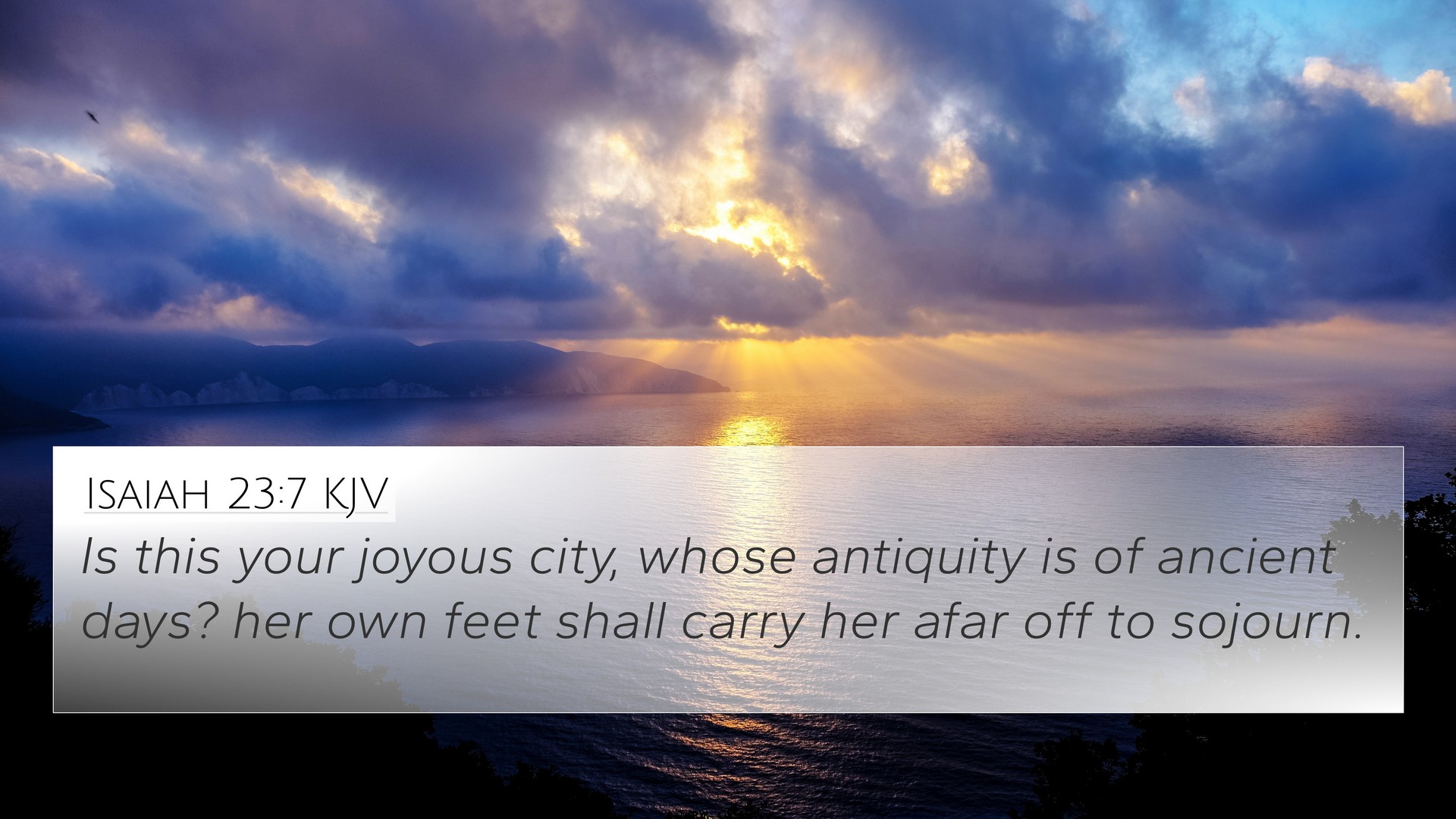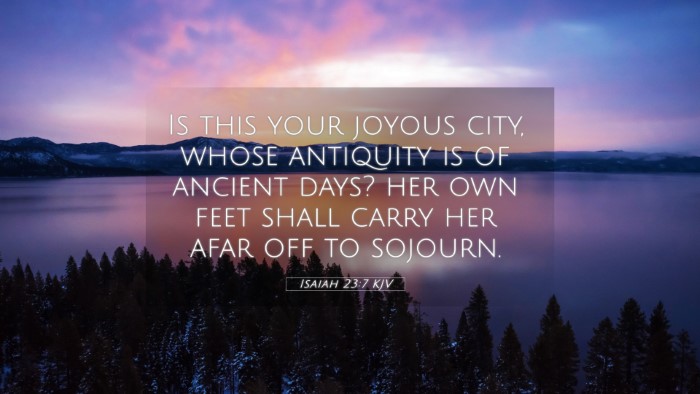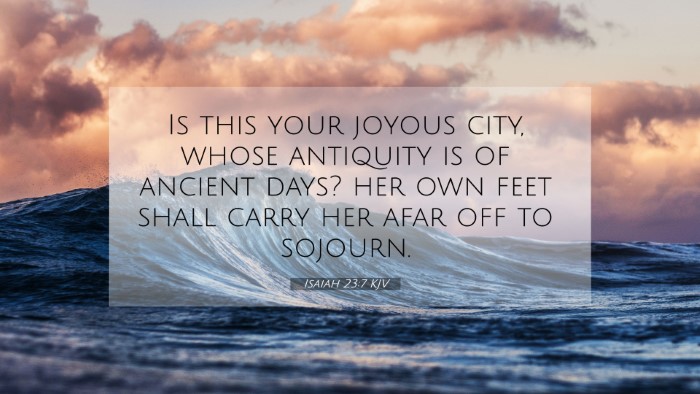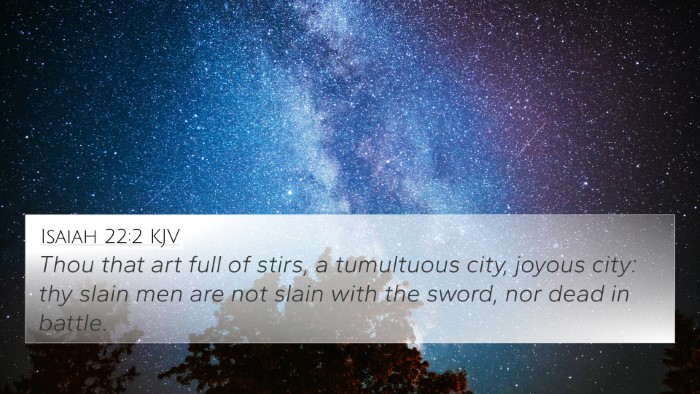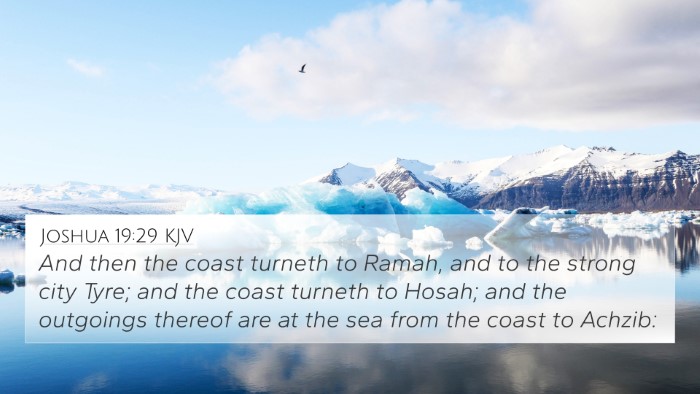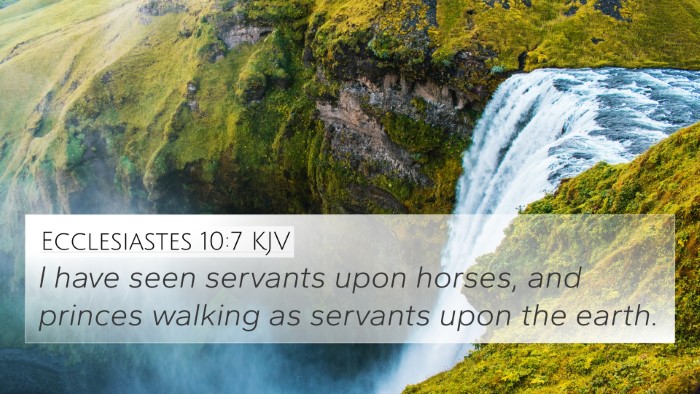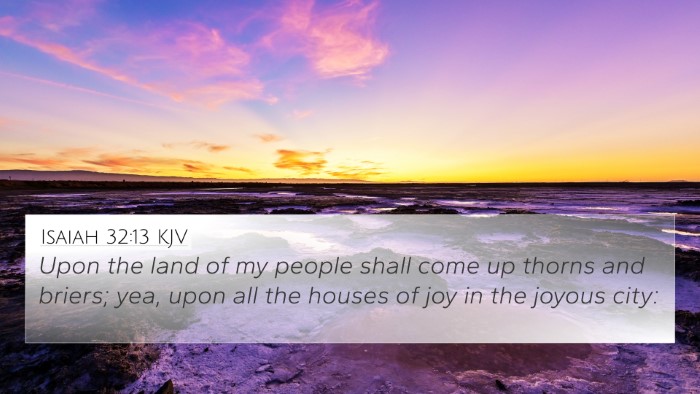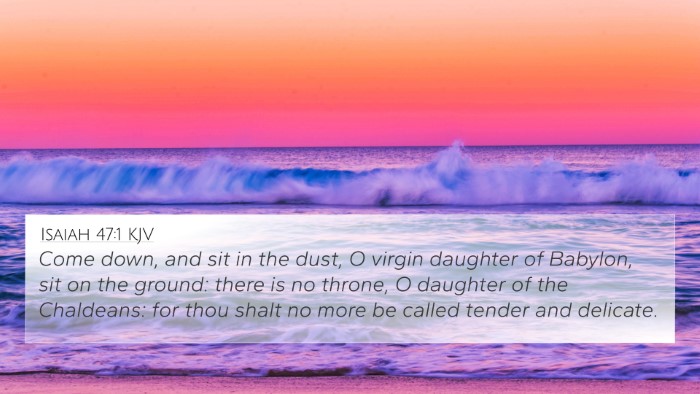Understanding Isaiah 23:7
Isaiah 23:7 reads, "Is this your joyful city, whose antiquity is of ancient days? Her own feet shall carry her afar off to sojourn." This verse reflects on the fate of Tyre, a significant ancient city known for its trade and wealth. In this exposition, we combine insights from esteemed public domain commentaries to provide an enriched understanding of the verse.
Contextual Analysis
Tyre, a major trading hub of the Phoenicians, symbolizes worldly pride and economic success. Isaiah's questioning tone highlights the contrast between the city's former glory and its impending judgment. The term "joyful city" suggests a facade of prosperity, yet the underlying message warns of imminent downfall.
Commentary Insights
Matthew Henry's Commentary
Matthew Henry emphasizes the irony in the question posed by the prophet. The "joyful city" reflects the stronghold of trade and commerce, which, despite its wealth, cannot escape divine judgment. Henry notes that the anticipation of a long-lasting legacy is belied by the transient nature of worldly success.
Albert Barnes' Notes
Albert Barnes brings attention to the phrase "whose antiquity is of ancient days," suggesting that Tyre's history does not exempt it from God's scrutiny. He argues that the city’s eventual decline serves as a reminder of the sovereignty of God over nations. Barnes indicates that while Tyre appeared invulnerable, it was destined for destruction, reflecting God’s control over earthly powers.
Adam Clarke's Commentary
Adam Clarke interprets the verse as a prophetic declaration that conveys Tyre's journey from joy and security to desolation. Clarke describes the historical context of Tyre's prominence and how its eventual decline serves as a warning to contemporary nations about the fleeting nature of wealth and pride.
Thematic Connections
This verse signifies a key theme in the Bible regarding the transience of human achievement in the face of divine judgment. It calls to mind several pertinent cross-references:
- Isaiah 14:12-15 - The fall of Lucifer and the pride before destruction.
- Amos 1:9-10 - God’s judgment against Tyre for its treachery.
- Ezekiel 26:3-6 - The prophecy of Tyre's ruin by Nebuchadnezzar.
- Revelation 18:10-17 - The lamentation over the fall of Babylon, drawing parallels to Tyre's judgement.
- Proverbs 16:18 - "Pride goes before destruction," highlighting the theme of divine retribution for hubris.
- Jeremiah 25:22 - The prophecy against the nations, including Tyre, demonstrates the universality of God’s judgment.
- Matthew 6:19-21 - Jesus' teaching on storing treasures in heaven rather than on earth, echoing the fleeting nature of worldly riches.
Conclusion
Isaiah 23:7 serves as a stark reminder of the impermanent nature of human achievement and the inevitability of divine justice. The insights from historical commentaries such as those by Matthew Henry, Albert Barnes, and Adam Clarke help underscore the verse's significance and its implications for both ancient and modern readers.
Further Study and Reflection
For deeper insight into this verse and its thematic connections, readers are encouraged to utilize cross-referencing tools and systems. By exploring related scriptures, one can develop a more comprehensive understanding of the Bible's interconnected themes. This verse, while specific to Tyre, reflects broader spiritual truths relevant to all nations and individuals.
Using Bible References Effectively
Engaging with a Bible concordance or a Bible cross-reference guide can significantly enhance your study experience. These tools allow believers to identify and explore connections between verses, enriching their comprehension of scripture.
As you study Isaiah 23:7, consider the question: What verses are related to this specific Bible verse? Engaging in Bible cross-reference studies can reveal the intricate links and dialogues that exist within the sacred texts.
